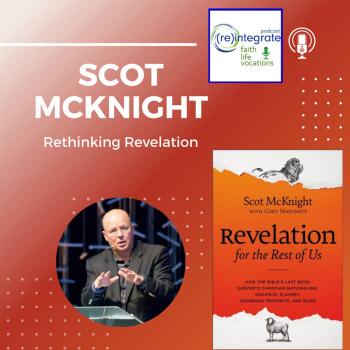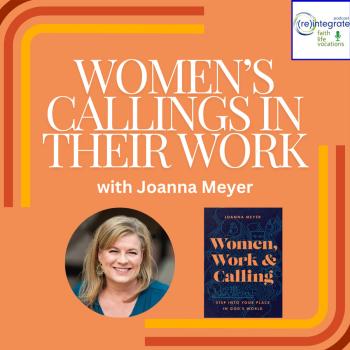 Through what lens do I perceive the news of the deaths of Ahmaud Arbery, Breonna Taylor, and George Floyd? Of the protests all across the country? Or of football players kneeling during the National Anthem?
Through what lens do I perceive the news of the deaths of Ahmaud Arbery, Breonna Taylor, and George Floyd? Of the protests all across the country? Or of football players kneeling during the National Anthem?
While white conservative Christians certainly know about the history of slavery and the racial inequality represented by the Jim Crow segregation laws, both our life experience and worldview have lulled us into believing that there is no real systemic racism in our nation today and that white supremacy is a thing of the past.
How we perceive things is often determined by our experience and our worldview. Please try to track with me as I present the white conservative Christian’s experience and concept of sin and how these two things keep us from seeing reality correctly.
Most White Conservative Christians Haven’t Experienced Systemic Racism
With some exceptions, many white evangelicals live isolated from blacks. Apart from a few acquaintances, few of us have interracial contacts. We live in predominantly white neighborhoods, worship in predominantly white churches, and work predominantly with other whites.
Since we hardly ever witness many people who are openly prejudiced, we assume that racism is simply not as big a problem as some make it out to be. We see it mainly as a thing of the past (though we know that some people, in their sinfulness, still harbor racist views). We can say, “I certainly know that I and my friends are not racist!” “Color is not an issue with me at all. In fact, I can point to several times when I had good interactions with African Americans.”
We don’t get why people are still using the term “white supremacy” like that’s still a thing. We point to the hardships that we ourselves have had to endure: the difficulty of making ends meet, in finding work, of scratching our way through life. We don’t feel it justified to say that we experience supremacy because we are white. We have no way of fathoming the stories of black men saying that their options are severely limited simply because of the color of their skin.
And we certainly do not fear law enforcement. With the exception of getting ticked off when we get pulled over for speeding, we see the police as our protectors and people who are there for us, not against us.
So, it is not surprising that many white conservative Christians look with suspicion at reports of systemic racism. The problem seems overblown. So it seems that since it is not me nor my people that are constantly making race an issue, it must be another group that is causing it. Perhaps the black people are themselves at fault for causing racial division, or maybe the liberal media wants to ramp up ratings by making it a bigger issue than it actually is.
But let’s be honest. Just because we haven’t experienced something doesn’t mean that it isn’t real. And in 2020, we can’t claim ignorance anymore. For a long time, systemic racism has been swept under the rug, hidden from view for many. But with the revelations brought about by video evidence from citizens recording injustices with their phones, that day is over.
Christians are called to love and seek justice for anyone and everyone who is marginalized and oppressed. God tells us that the kind of faith action he wants is not merely a “fast” in which we bow our heads and put on sackcloth and ashes. God says, “Is not this the kind of fasting I have chosen: to loose the chains of injustice and untie the cords of the yoke, to set the oppressed free and break every yoke?” (Isaiah 58:6).
Most White Conservative Christians Have a Narrow Conception of Sin
As a white evangelical Christian, the way I’ve been trained to understand sin is this: The problems we see are usually caused by individuals sinning, destroying what should be peaceful relationships with God and with each other.
When a couple of men chase down a black man running in their neighborhood and shoot him, they are acting as individual sinners, with racial prejudices that they need to be accountable for. And we also have the tendency to ask, “What did that man do to cause those men to chase him?” (because he must be accountable too).
When another man is choked to death by a policeman forcefully pressing his knee on his neck on a city street, it was that man (and his accomplices) that are at fault. They indeed should have been fired and should even be criminally charged. And, of course, we have that tendency to also ask, “What did that man who died do that put him in that situation in the first place?”
Do you see the conception of sin here? It’s all about individual sin.
Our understanding of sin is a narrow emphasis on accountable individualism as it relates to interpersonal relationships. Since everything is reduced to individuals in relationships with each other, there is no paradigm for understanding structural systemic problems. In fact, we’ve been trained to view systemic explanations as foolish. It’s those liberals who always want to blame “the system,” shifting the focus away from individual accountability.
Now don’t hear me wrongly. I’m not saying that individual accountability in interpersonal relationships is not an important framework for understanding sin. What I’m saying is that it’s not enough.
Individualistic sinful actions not only violate interpersonal relationships, but our amassed selfish personal choices eventually make their way into social systems and institutions, causing them to be radically flawed as well.
The vast accumulation of unjust racist choices done by people in power over decades and decades has resulted in complex social, economic, and legal systems that are inherently racist. Our nation’s long history of racial prejudice that privileged whites over blacks is not just a thing of the past; it has shaped our social systems and institutions to this very day.
But we are trained not to see it. Our worldview is myopic, focusing only on individual sin. We can’t see that there is a systemic problem that has caused people of color (especially black men) to fear for their very lives.
For black men, police are not seen firstly as defenders of justice (as they should be), but as perpetrators of injustice (because of all the deaths of their friends and family at the hands of police). The “land of the free and the home of the brave” may be wonderful for white men and women, but for many blacks, it is simply a fallacy.
Because of our limited experience and our individualistic definition of sin, we have difficulty seeing it. That’s why many of us white conservative Christians don’t get why blacks are protesting (be it with Black Live Matters marches which sometimes result in violent confrontations with police, or peaceful protests by football players like Colin Kaepernick going down on one knee during the National Anthem).
We Need to Understand that Sin is Both Personal and Systemic
The Bible condemns both personal sin and evil structural systems. Think of the prophets and how they not only called people out for their personal sins but also about the unjust social systems. They saw that sinful people lead to sinful legal systems and sinful economic structures that need to be called out and changed (see Amos 5:10-15).
We cannot define sin simply as personal and individualistic anymore. We have to define sin systemically as well.
And we cannot think that we understand or can judge the hardships of others when we have little frame of reference to do so. This is a moment when we need to listen afresh to the word of God, as the ancient people of God were forced to do through the prophets and make drastic changes.













